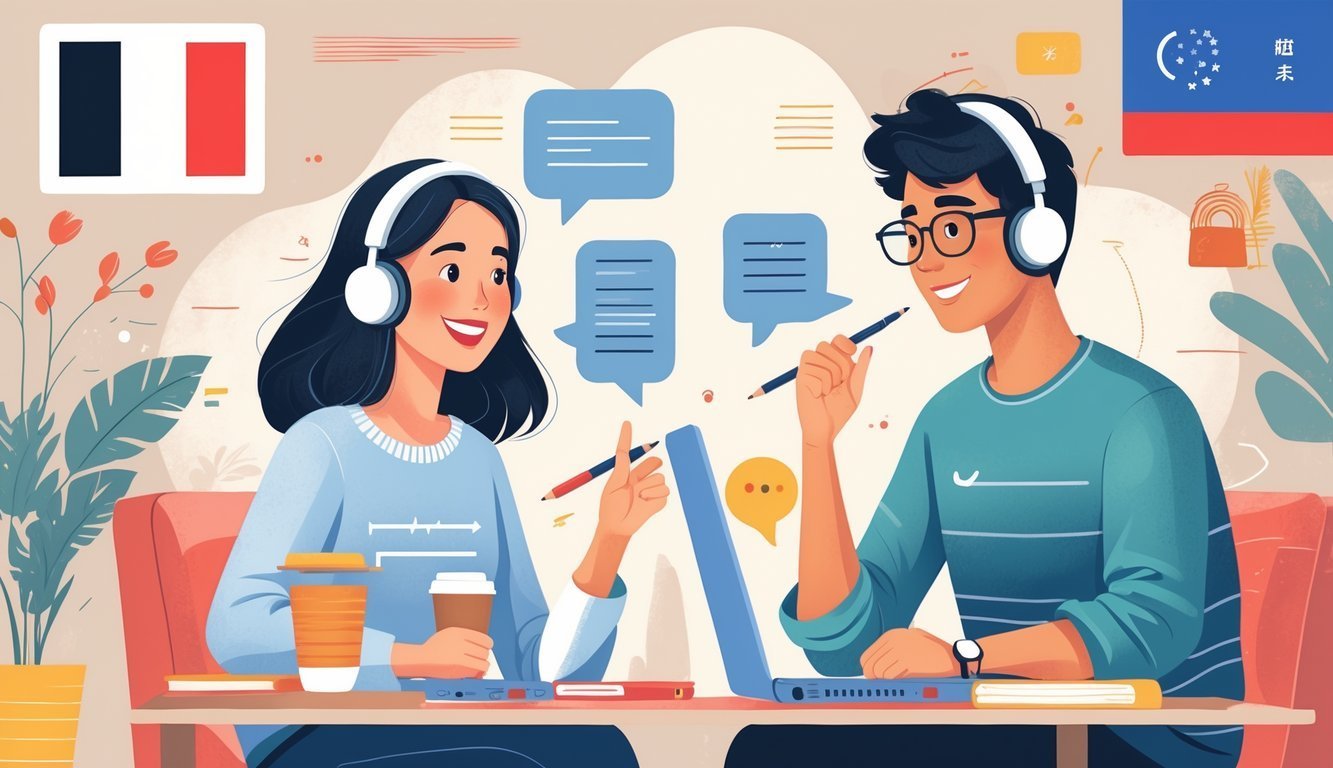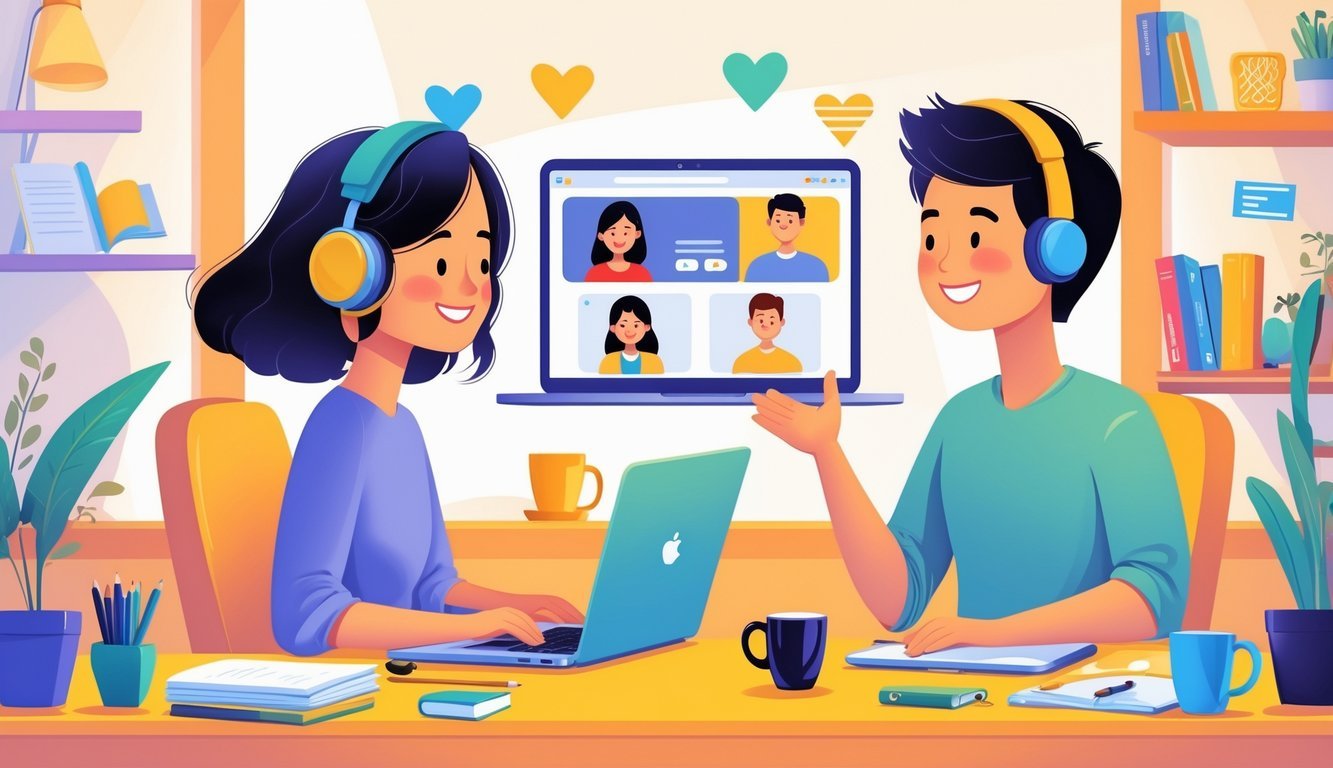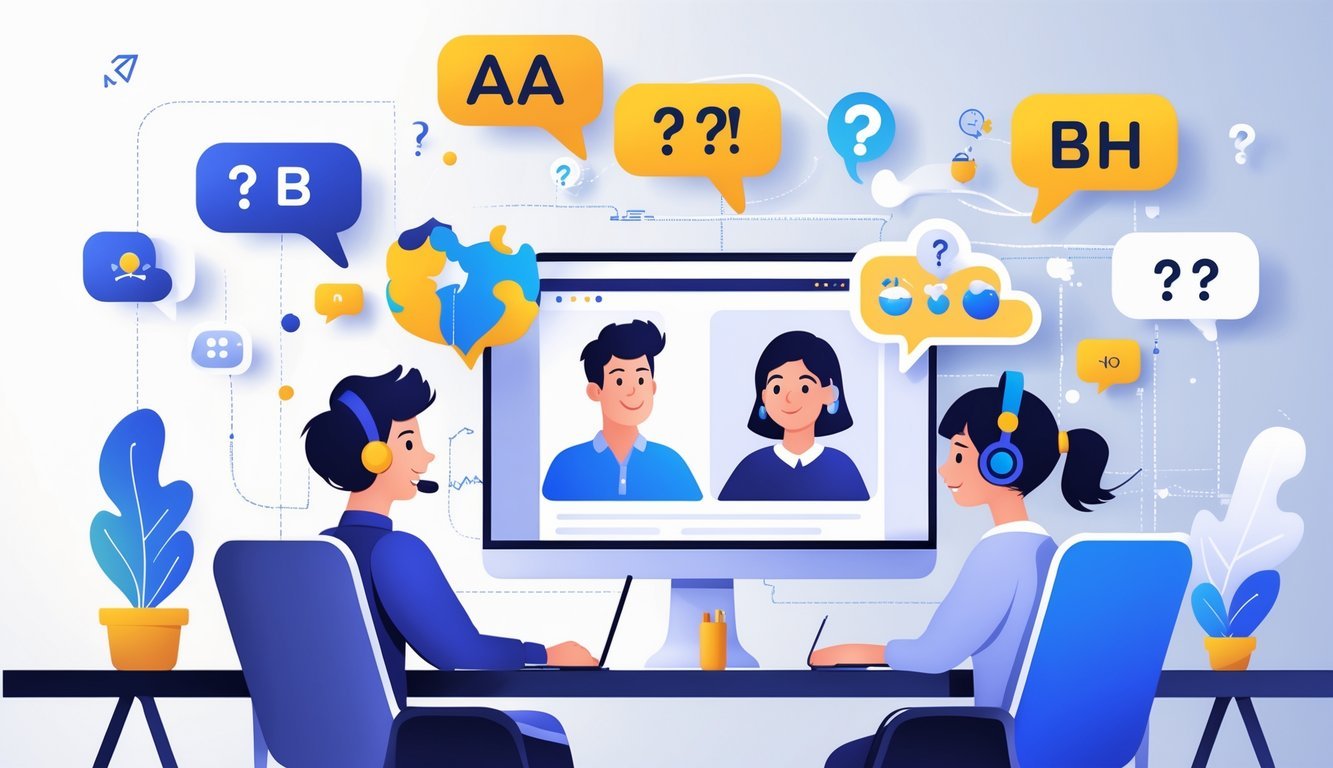PsychNewsDaily Publishers
100 Summit Drive
Burlington, MA, 01803
Telephone: (320) 349-2484
PsychNewsDaily Publishers
100 Summit Drive
Burlington, MA, 01803
Telephone: (320) 349-2484
Finding a language exchange partner enhances language skills through real conversations, cultural insights, and regular practice via chat, voice, or video on various platforms.

If you’re trying to pick up a new language, finding an online language exchange partner can really boost your progress.
An online language exchange partner is just someone you meet up with online to practice speaking and writing in each other’s native languages. You get to learn in a way that feels natural and supportive, usually through chat, voice calls, or even video.
Websites and apps make it pretty easy to meet partners from all over the world. You can match up based on language, location, or even hobbies.
This way, you find someone who fits your learning style and goals—and you get to help them too.
Language exchange doesn’t just build your language skills. It gives you a peek into different cultures as well.
It’s a straightforward, affordable way to practice regularly—no need to pay for classes or tutors.

An online language exchange partner is someone you connect with to practice each other’s native languages. You both take turns speaking and helping each other out.
You end up learning through real conversations, not just textbooks or apps.
Language classes usually stick to a set plan and focus on grammar, vocabulary, and exercises. Most of the time, you just follow a teacher’s lead.
A language exchange feels more casual and flexible. You talk with a native speaker or someone learning your language too.
The goal is to practice real-life conversation, not just formal lessons. You can pick the topics and words that matter to you.
You’ll notice you improve faster because you hear how people actually talk. It’s less about tests and more about chatting.
You get to pick up slang, pronunciation, and cultural tips you probably won’t find in most classes.
You’ll find different types of language partners online. Some are native speakers who want to learn your language.
Others are learners at your level who want to practice together.
Common types include:
Most people set up a schedule and agree on when to speak each language. This way, both sides get a fair shot at practicing.
You can use messages, voice calls, or video chats—whatever works for you.
Having an online language exchange partner gives you a bunch of advantages.
You get to practice regularly without leaving home, which builds your confidence.
You’ll pick up new words from real conversations, not just a textbook. Talking to native speakers means you hear proper pronunciation and natural expressions.
You can ask questions and get feedback right away.
It’s also motivating. When you chat with someone who’s learning your language too, you both encourage each other.
You don’t have to stress about mistakes—the whole point is to help each other get better.

You’ll want to find someone who matches your language goals and interests.
When you connect well, it’s easier to practice and enjoy learning about new cultures. Here’s how to get started.
Look for a partner who shares your interests and language goals. Plenty of apps let you filter by native language—like Arabic, Chinese, French, German, Japanese, or Spanish—and by your skill level.
It helps to find people who like the same things as you. If you’re into cooking, sports, or travel, search for partners with similar hobbies.
This keeps conversations interesting and fun.
You can also filter by age, location, and availability to match your schedule. The closer the match, the easier it is to stick with regular practice.
Several platforms make it easy to find language exchange partners.
| Platform | Focus | Features |
|---|---|---|
| Tandem | Wide language options | Search by language, interests |
| HelloTalk | Global users, many languages | Chat, voice, video calls |
| Reddit (r/Language_Exchange) | Community-driven | Find partners via posts |
| Language Exchange Websites | Large variety | Penpals, messaging, forums |
You can join communities on social sites or apps that focus on certain languages.
For example, if you want to practice Spanish or Japanese, look for groups dedicated to those.
Video chat tools take your language practice up a notch. They give you visual cues and real-time feedback.
Apps like HelloTalk and Tandem have video call features built in. Watching your partner’s mouth movements helps with pronunciation.
Set up regular video calls to build a routine. This helps you trust each other and makes conversations feel more natural.
Using video, you can practice real-world situations—like ordering food or asking for directions.
Just make sure your internet connection is solid.
Language exchange isn’t just about learning words. It’s a chance to explore culture and swap travel stories.
Ask your partner about their traditions, customs, or local events. You’ll build cultural awareness along with your language skills.
If you’re planning a trip, get tips and real-life advice. Partners can share ideas about places to visit, cultural dos and don’ts, and useful phrases.
Sharing travel experiences makes your connection deeper and language learning a lot more interesting.

Finding the right language exchange partner and using the best tools can make a big difference.
You’ll probably wonder where to look, which apps to try, and how to connect with your partner.
You can join websites that offer free language exchange services.
Look for platforms where you can create a profile and search for partners by language and skill level. Sending a friendly message to someone with similar goals usually works.
Popular apps include Tandem, HelloTalk, and ConversationExchange.
These apps let you chat by text, voice, or video, and most offer free basic plans.
Both apps are really popular.
Tandem focuses on community and quality matches, while HelloTalk stands out for its chat tools and correction features. It’s up to you—pick the one that feels right.
Look for easy search filters to find partners by language and skill level.
A good site should have chat features, notifications, and some safety tools or moderation.
Set clear goals for each session and practice often.
Be patient and help your partner with their language too. Try to mix speaking, listening, and writing so you cover all your skills.
Try to show up regularly and treat your partner with respect.
Make sure you both get time to practice—don’t hog the conversation.
Offer gentle corrections when needed, and don’t forget to encourage your partner.
If you talk openly about what you need, the exchange usually works out better for both of you.